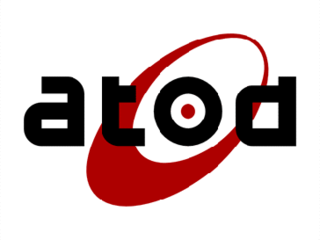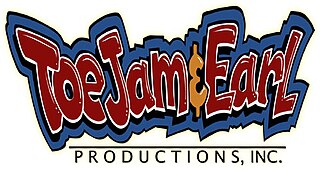 W
WThe 3DO Company, also known as 3DO, was an American video game company. It was founded in 1991 by Electronic Arts founder Trip Hawkins, in a partnership with seven other companies. After 3DO's flagship video game console, the 3DO Interactive Multiplayer, failed in the marketplace, the company exited the hardware business and became a third-party video game developer. It went bankrupt in 2003 due to poor sales of its games. Its headquarters were in Redwood City, California in the San Francisco Bay Area.
 W
WAtod AB/LG Software AB was a video game developer located in Helsingborg, Sweden. It was established in 1987 and formally incorporated as company in 1992 by the game development duo Christofer Nilsson and Thomas Liljetoft and active until 2003 when it was merged with British game developer Warthog Games and renamed to Warthog Sweden. In May 2006, the company was acquired by British publisher and developer Eidos Interactive. Today the company is part of the SCi Entertainment Group who acquired Eidos Interactive in 2006.
Black Isle Studios was a division of the developer and publisher Interplay Entertainment that developed role-playing video games. It published several games from other developers.
 W
WData East Corporation , also abbreviated as DECO, was a Japanese video game and electronic engineering company. The company was in operation from 1976 to 2003, and released 150 video game titles. Its main headquarters were located in Suginami, Tokyo. The American subsidiary, Data East USA, was headquartered in San Jose, California.
 W
WEnix Corporation was a Japanese video game publisher that produced video games, anime and manga. Enix is known for publishing the Dragon Quest series of role-playing video games.
 W
WGotham Games, Inc. was an American video game publisher based in New York City. Founded in July 2002 and headed by Jamie Leece, the company was shut down in December 2003.
 W
WInnerloop Studios was a Norwegian video game developer operating from 1996 to 2003. The company was founded as Innerloop Technologies in May 1996 by a group of ex-employees of the Oslo-based video game company Funcom. After entering into a partnership with the video game developer and publisher Eidos Interactive, Innerloop merged with DiMaga Studios in 1997 and changed its name to Innerloop Studios to reflect the merger. In the fall of 2000, Swedish electronic entertainment company Vision Park acquired the studio. In 2002, Innerloop once again became an independent company before shutting its doors in June 2003. The company was unable to make funds to create future titles, so they finally decided to shut down the studio.
 W
WLodestone Games was a game development studio based in Charlottesville, Virginia. The majority of its employees came from EA/Kesmai after Electronic Arts closed that studio in the fall of 2001. Lodestone Games specialised in the development of both online PC games and client/server technology for online PC games.
 W
WLost Toys Ltd. was a British video game developer founded in March 1999 by Glenn Corpes, Jeremy Longley, and Darran Thomas, all of whom had previously worked for Bullfrog Productions. Les Edgar helped by providing financial support. Lost Toys was the third Bullfrog break-off group, after Mucky Foot Productions and Lionhead Studios, and was founded due to disillusionment after Electronic Arts purchased Bullfrog.
 W
WMarigul was a Japanese corporation created and jointly owned by video game company Nintendo Co., Ltd. (40%) and media company Recruit (60%). Its name is a combination of Nintendo's mascot Mario and Recruit's mascot Seegul.
 W
WMicroProse is an American video game publisher and developer founded by Bill Stealey and Sid Meier in 1982. It developed and published numerous games, including starting the Civilization and X-COM series. Most of their internally developed titles were vehicle simulation and strategy games.
 W
WMucky Foot Productions Limited was a British video game developer, which existed from 1997 to 2003.
 W
WNew World Computing, Inc. was an American video game developer and publisher founded in 1984 by Jon Van Caneghem, his wife, Michaela Van Caneghem, and Mark Caldwell. It was best known for its work on the Might and Magic role-playing video game series and its spin-offs, especially Heroes of Might and Magic. The company was purchased by and became a division of The 3DO Company on July 10, 1996 from NTN Communications, after NTN purchased New World Computing for $10 million in stock.
Param was a video game development company that worked in partnership with Nintendo. Param was a part of Marigul Management. Param was defunct as Marigul was liquidated in May 2003.
 W
WQuest Corporation was a Japanese video game company founded in 1988. They were originally known as Bothtec, which had developed The Scheme, a Metroidvania-style open world action role-playing game featuring music by Yuzo Koshiro, that same year. Quest is best known for its critically acclaimed tactical role-playing game series Ogre Battle.
 W
WSilicon Dreams Studio Limited was a British video game developer based in Adderbury, England.
 W
WSir-Tech Software, Inc. was a video game developer and publisher based in the United States and Canada.
 W
WToeJam & Earl Productions, Inc. (1989–2003) was an American video game company founded by Electronic Arts developers Mark Voorsanger and Greg Johnson. Their best-known titles were Orly's Draw-A-Story, and three games in the ToeJam & Earl series.
 W
WWestwood Studios, Inc. was an American video game developer, based in Las Vegas, Nevada. It was founded by Brett Sperry and Louis Castle in 1985 as Westwood Associates and was renamed Westwood Studios when it merged with Virgin Games in 1992. The company was bought by Electronic Arts alongside Virgin Interactive's North American operations in 1998. In January 2003, it was announced that Westwood, alongside EA Pacific, would be merged into EA Los Angeles. The studio closed in March that year.